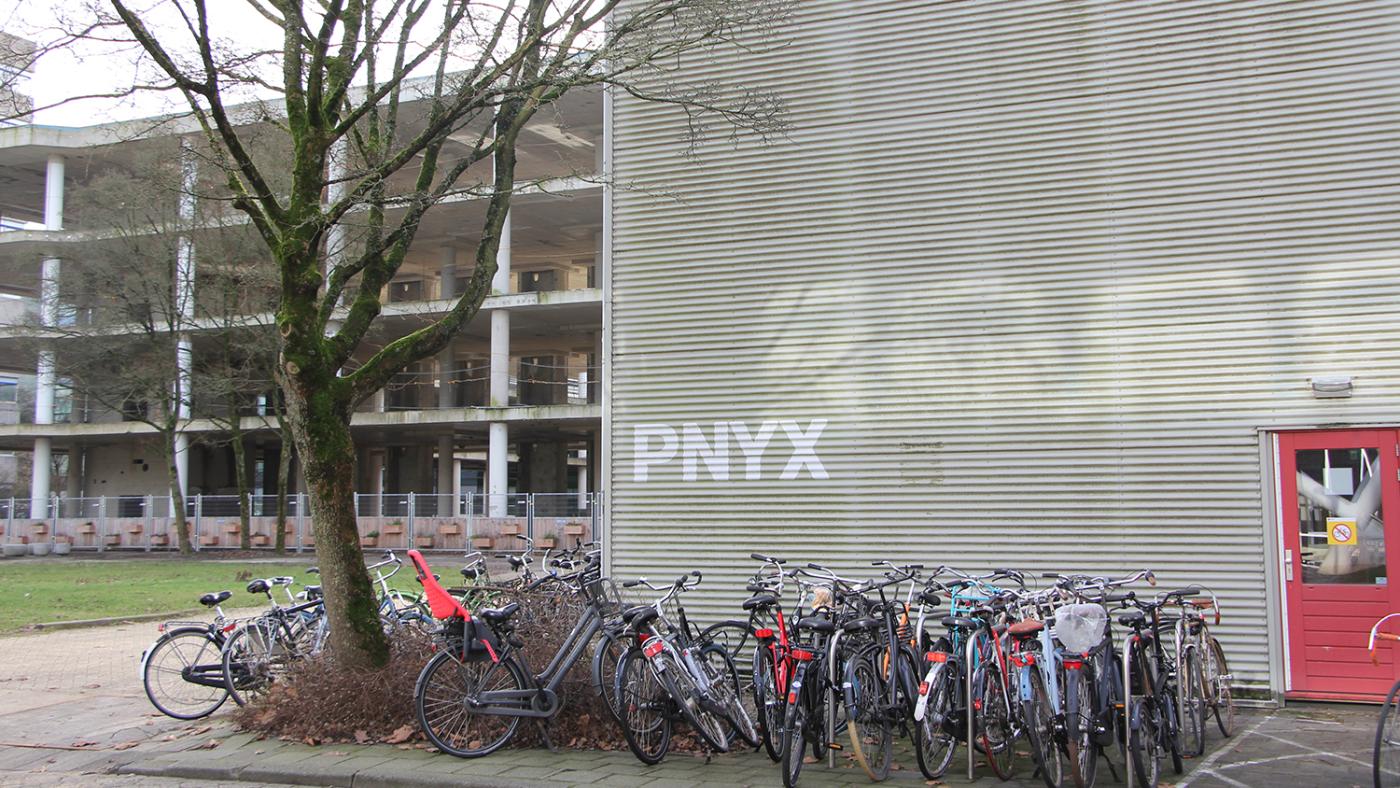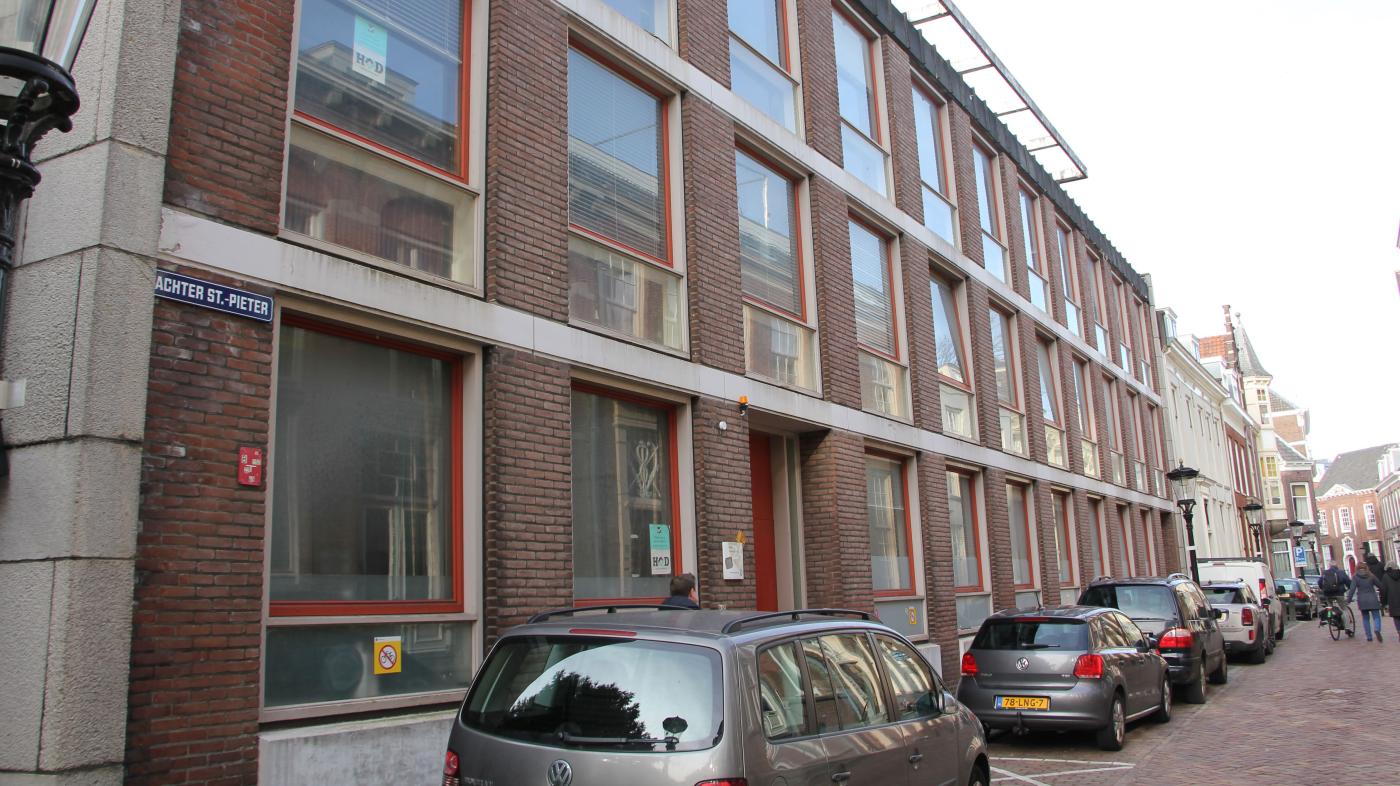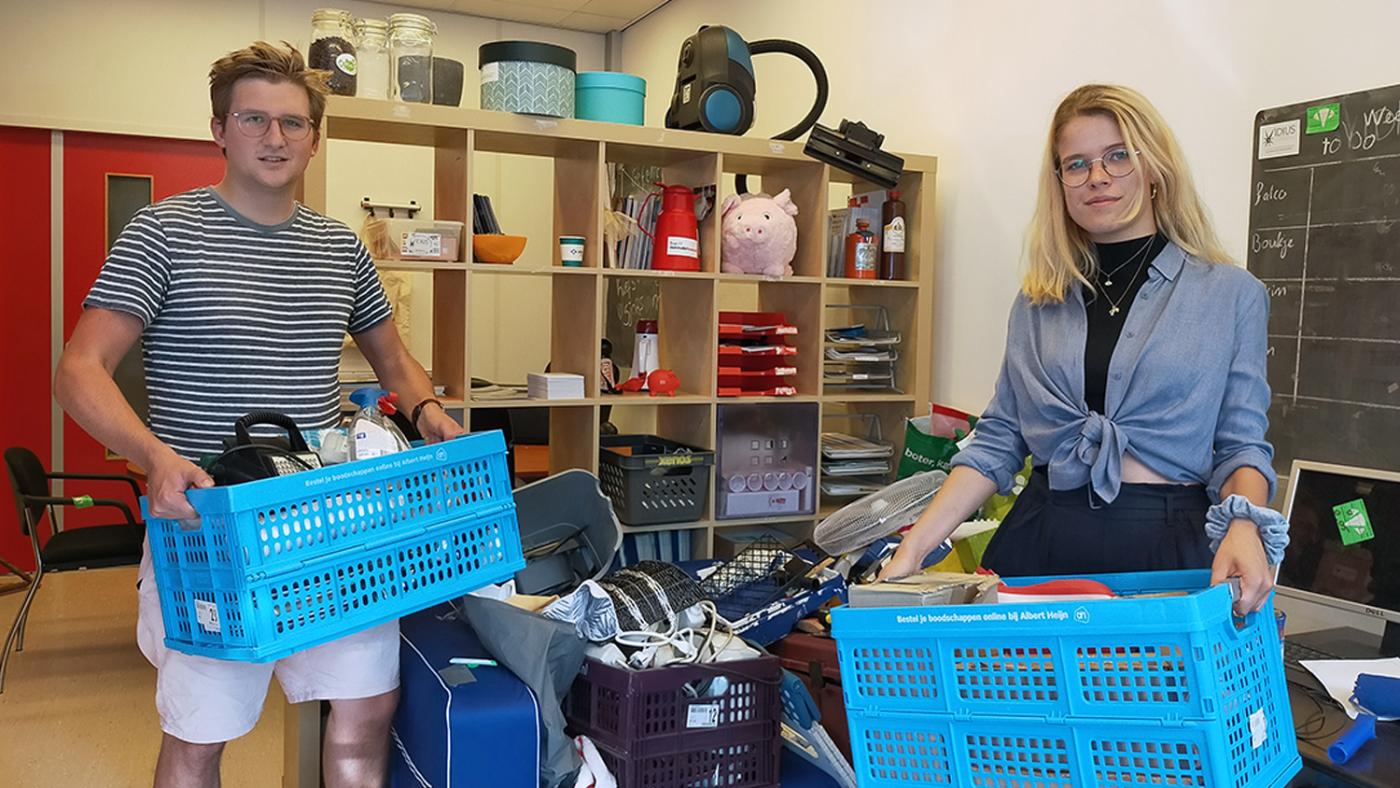Both frustration and understanding among student organisations
Student boards accept Pnyx relocation

Pnyx was the name of the office building on Achter Sint Pieter in the city centre that housed the boards of many student organisations. The UU had other plans for the building, so all the boards had to move to Princetonplein in Utrecht Science Park in 2020. The move from the prime location to a former laboratory caused discontent. However, because it was clear from day one that this would be a temporary solution and that they might move back to the city centre, the boards accepted this.
However, hopes for a long-term solution that would take the organisations' wishes into account proved to be in vain. At the end of last year, the associations were told that they would have to move again to a temporary location. This time to Bolognalaan, a building used by both University of Applied Sciences Utrecht (HU) and UU. This new location is even further from the city centre and there are other disadvantages on the horizon. Earlier, student representative Vidius sent an urgent letter to the university board about this. The organisations criticised the fact that they would not be given their own room, that there would be too little storage space and that the building was less accessible. They also felt that they had not been sufficiently involved in the planning..

The former Pnyx-building in the city centre, photo DUB
What is happening now
After the letter signed by 23 organisations, several discussions took place between the student organisations and the university. “Of course, an urgent letter has an impact, but the fact that there has been more consultation is mainly due to the approaching moving date,” says Ramon Ellenbroek, team leader of Student Life & International Mobility.
Whereas the student organisations were previously critical of the university, the discussions have led to greater understanding. Philip Sokolov, board member of Vidius, says: “Within the possibilities that exist, which are not ideal, it's fine.” Other associations also realised after the discussions that the options are limited. Histos chair Sann Leisink says: “I feel that the UU really looked at the best option for us with the available space. We'll just have to see how it works out when several organisations are sharing a space. We'll have to find a way to make it work together.”
The student organisations are particularly concerned about sharing office space. In order to accommodate all the boards in the building at Bolognalaan 101, several association boards will have to share a room. This will make it more difficult to consult freely. "As a board, we sit together every day from ten to six. On such days, privacy-sensitive information regularly comes up,” says Aegee president Silke Visser. “Sharing spaces will make it more difficult to discuss these issues.” Other boards share these concerns, which was the reason for the urgent letter. “Just like everyone else, the associations can book meeting rooms,” Ellenbroek suggests as a solution.
The university understands that sharing spaces is detrimental to the associations, but according to Ellenbroek, their position is not exceptional. This happens in other places at the university. It is simply the way things are at the moment. Ellenbroek also emphasises that having a separate boardroom is already an exception. Not all associations currently have this luxury at Princetonplein.
The student organisations were consulted about the layout of the spaces. Based on their wishes, the university is currently drawing up a final plan. The university wants to take the wishes of the organisations into account as much as possible when deciding on the layout. And although everyone is happy with the current situation, “we would prefer to have our own office in a decent space,” says Philip Sokolov.
Another disadvantage of the Bolognalaan is its visibility and accessibility. Silke Visser of Aegee: “Members often drop by the office, but they have to know where to find it.” The layout of the building is somewhat confusing, so it will take some getting used to for the organisations and their members to find their way around. However, there is one advantage: unlike at Princetonplein, an employee pass is not required to enter the building. Such a pass is required to enter the offices, but at least members will no longer be faced with a closed door, as has sometimes happened at the current location.
Some associations also see an advantage in the fact that the building is also used as a teaching location for University of Applied Sciences Utrecht (HU). “The mixed student group will be good for Vidius,” says board member Philip. But also for the other organisations: this could strengthen the ties between the associations that are mainly focused on the university and the university of applied sciences.

Once again, the boards will have to move everything. Photo DUB
A look to the future
Pnyx will move to Bolognalaan before the summer. There, the organisations can start furnishing their shared rooms. It is not yet known how long they will remain in these premises. The organisations are still hoping for a permanent solution. As they were very fond of the building in the city centre, they would like to return there for a longer period of time. According to Ellenbroek, this wish is not easy to grant given the budget cuts for accommodation. For the time being, the university will continue to puzzle over the space allocation. However, the student organisations will be included in the plan to improve the quality of life at Utrecht Science Park.